‘It’s all about having the belief’
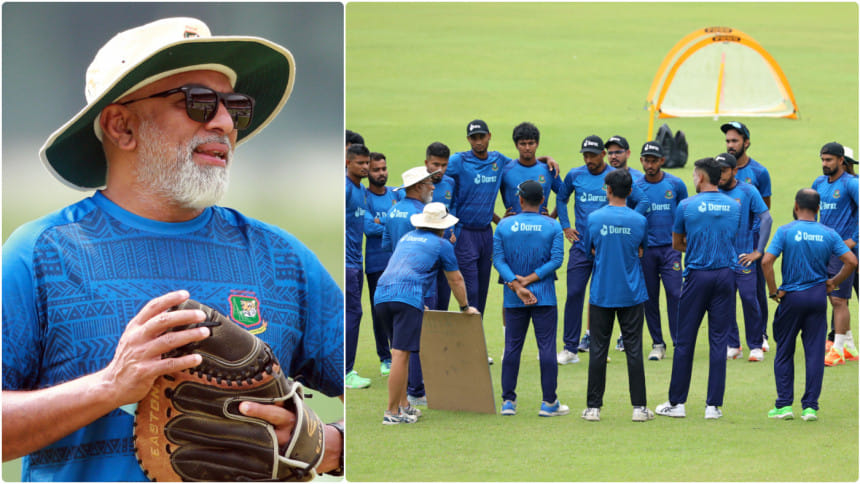
An important figure behind Sri Lanka's emergence as a cricketing force in the world, Hashan Tilakaratne is someone who possesses vast knowledge about the game. The former Lankan captain, who was an integral part of the 1996 World Cup-winning Sri Lankan side, has been in charge of the Bangladesh women's team since November 2022. During an exclusive interview with The Daily Star's Abdullah Al Mehdi, the 56-year-old talked about the mindset and the relationship a coach needs to have with the cricketers, the recipe for success in the World Cup, and his expectations from the Tigers ahead of the mega event in India.
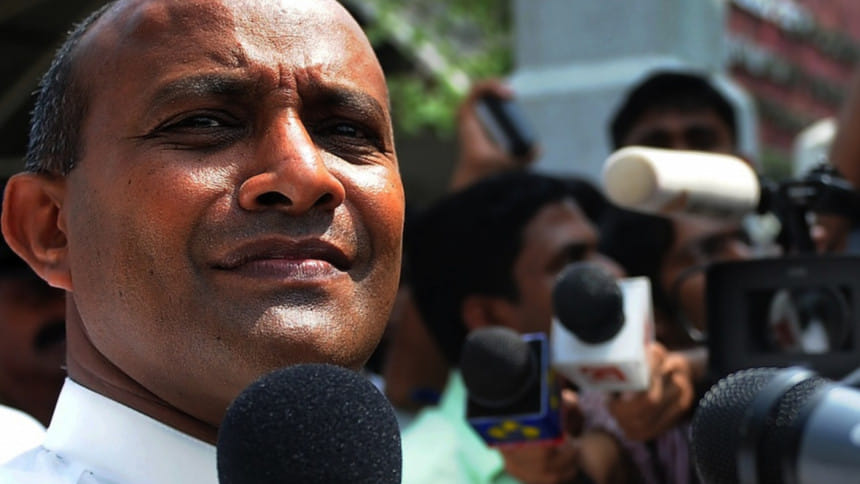
The Daily Star (DS): What's your view on the current coaching scenario?
Hashan Tilakaratne (HT): As a coach, you need to adapt and adjust to the demands of the game. The game is moving fast, and we have to match the pace. You need to adapt, but according to the rules and regulations at play. A coach needs to understand what a World Cup demands.
DS: What are the challenges of coaching the Bangladesh team at the World Cup?
HT: It's important to find out what sort of side you have. You have to analyse strengths and weaknesses. Conditions play a huge part because you set your team up according to the conditions. There is no point working on players' technique right now. It's all about tactical things, how you challenge the other side. When they throw a challenge, how you overcome those challenges also comes into the frame.
DS: What kind of tactical challenge comes up?
HT: It's all about the opponent. Suppose you are playing against a subcontinental side, then the tactics need to be different to playing against the likes of England, Australia or New Zealand. You need to be very flexible as a coach and with the team combinations.

DS: For instance, when you are facing a talented leg-spinner in the other side, what could be the tactical challenges?
HT: You have to play them regularly since in every team there are one or two leg-spinners. Overs 11 to 40 are the most important segment for a batting side since there are five fielders inside the circle, so that's where you need to score your runs. From the bowling point of view, they are looking for wickets and many sides have two leg-spinners or one chinaman and a leggie. They might leak runs but they get you wickets. That's why it's important to introduce them to the system so you can face them with confidence.
DS: How important is man management for a coach in a big tournament?
HT: It's a big thing in any tournament. You must understand each and every one of your players and respect them. They are all playing for the country and respect is the main thing. From there, it's about how you handle the players since they are different as individuals. For instance, in the women's team, I am playing a few more roles apart from coaching. Sometimes I am the father figure, a brother or sometimes a friend. So you need to play different roles. You can't be rigid and need to understand their behaviours. Catering to them is easier when you know them and respect them.
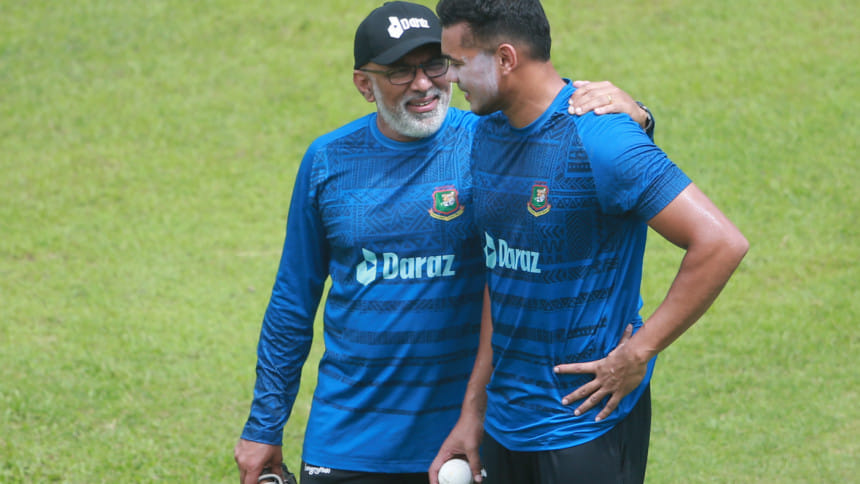
DS: How do you handle big stars?
HT: I was the batting coach of Sri Lanka in 2017 and came across so many players. I was a selector for two years too, and it's all about how you talk to them. You have to understand their side of the story. As ex-cricketers, we went through challenges as players so we need to understand the players we are handling. A strong mindset and being open to ideas is necessary.
DS: With the World Cup coming, what memories do you have of your 96' World Cup triumph?
HT: I cherish every moment of that World Cup. I still remember everything, even how we prepared before the tournament. Few of the players were staying with Arjuna Ranatunga's family while a few stayed with Aravinda De Silva since they were far from Colombo. We were together and we ate together and went to parties together. Six to eight of us would stay in one room and we were planning, laughing at jokes, singing and having fun. We enjoyed each other's success.
DS: You weren't the favourites during that tournament. From where did you get the confidence to go all the way?
HT: Before the World Cup, we beat New Zealand – our first overseas victory. After that, I can still remember driving down to Colombo and hearing Sir Richard Hadlee on the radio mention that Sri Lanka were underdogs for the 96 World Cup. Even I was surprised. He said that the way we were playing, we can win the World Cup. We didn't believe that ourselves. Then we won a few series. We won the first time in Sharjah and then Pakistan, the Tests and one-dayers. We made the finals of the Benson and Hedges series in Australia. So we had good results prior to the World Cup.
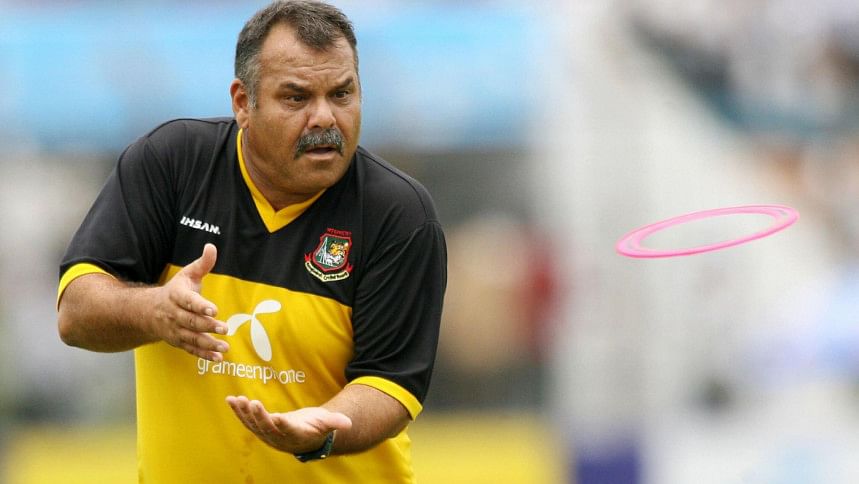
DS: What was the dressing room scenario like during that tournament with Ranatunga and Dav Whatmore?
HT: There was no pressure on us. There were no long team meetings. There were a few team discussions but overall we played freely. Sanath [Jayasuriya] and [Ramesh] Kaluwitharana were given full licence to go out there and express themselves. They were told not to worry about their place in the side. When you are given a task, you may or may not be successful. Whoever is giving you the task, there must be a guarantee that you will be looked after. That guarantee was given. In 1995, we identified the challenges – that we would have to score maximum runs in the first fifteen overs. Once you have a good score, we must consolidate from overs 16 to 50. If we lose wickets, who will consolidate? Those are the things we discussed.
DS: Dav Whatmore won the World Cup with you and also coached Bangladesh? What was he like? Do you see Chandika Hathurusingha doing good things here again?
HT: He [Dav] understood the culture as a Sri Lankan and also the ability of each player. He was very dedicated and a very good coach. He was very relaxed but sometimes he would get tensed. He doesn't show that much.
I have a lot of faith in Hathurusingha. He has done a lot of things for the development of the game in Bangladesh. The momentum is there and we have to back them and support the team.
DS: What do you think about Bangladesh's chances in the World Cup?
HT: I believe in these guys. They have all the ingredients to go all the way and win a World Cup. They now have to believe in themselves and play for each other. Everyone is banking on them and it's all about belief. You just beat one of the best sides in India. You can be the best side in the world but it won't matter if you don't have the belief. In 1996, we believed we could compete against the top sides, so it's about belief.

 For all latest news, follow The Daily Star's Google News channel.
For all latest news, follow The Daily Star's Google News channel. 


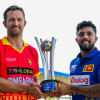
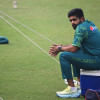
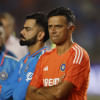
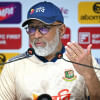


Comments